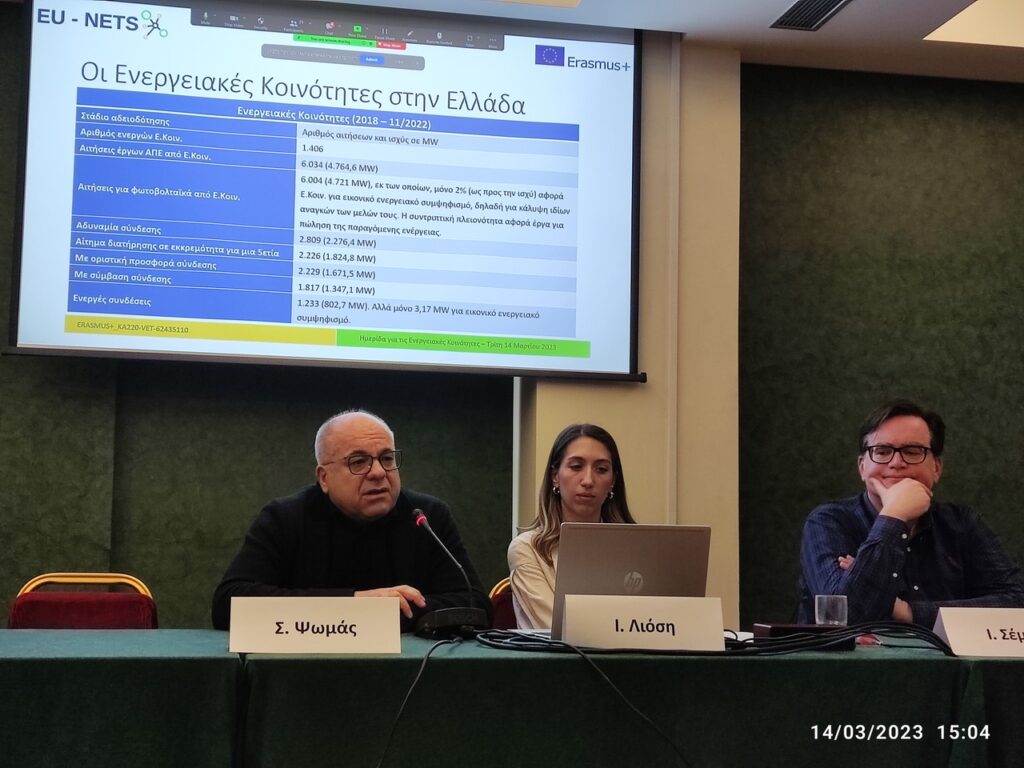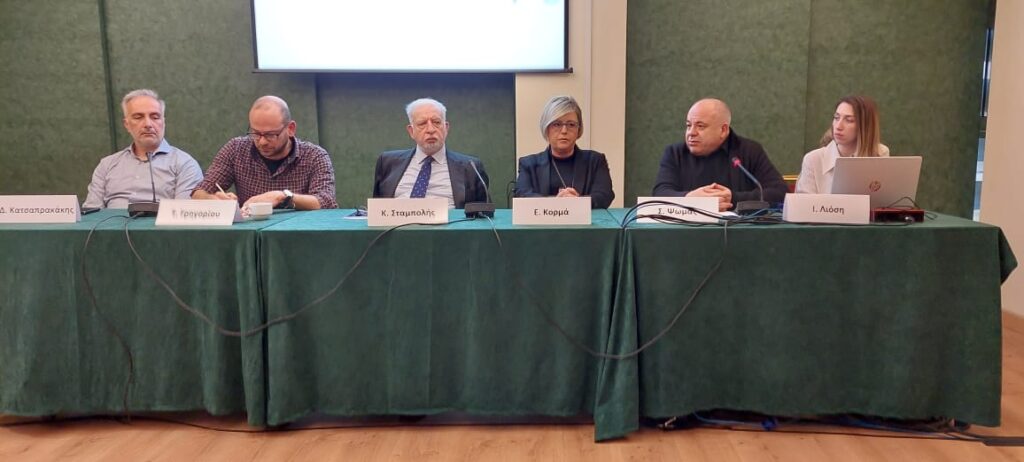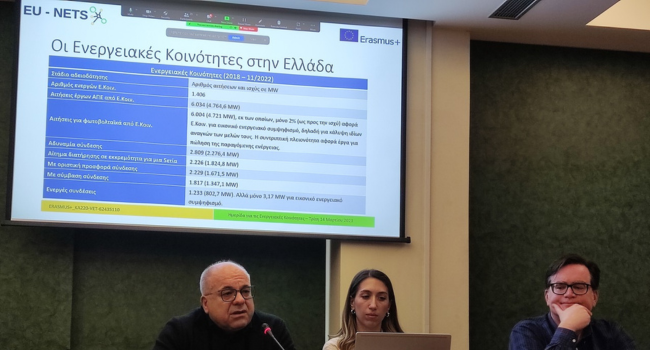In the context of EU-NETS Project, EUDITI organized an event in relation to the “Current challenges faced by Energy Communities”. The event was held on March 14, 2023 at Athinais Hotel, in Athens and was attended by 33 people in person and 22 people via online platform.
The aim of the event was to discuss the challenges faced by Energy Communities as well as to draw useful conclusions and find solutions to existing difficulties through discussion.
The first part of the event concerned a brief description of the EU-NETS pr樂威壯 oject, its aim and objectives as well as the first results. Specifically, Stelios Psomas (EUDITI) presented the legislative framework of Energy Communities, Ioanna Liosi (EUDITI) presented the mapping and analysis of existing Energy Communities and Dr. Ioannis Sempos (NTUA) presented a cross-analysis of the legal framework in other EU Member States.
The second part of the event concerned a round table discussion with representatives of public authorities and organisations that support Energy Communities. In particular, Ms. Effie Korma from the Division for Energy Policy and Planning of the Centre of Renewable Energy Sources and Saving (CRES), Mr. Takis Grigoriou from Hyperion Energy Community and Greenpeace, Dr. Dimitris Katsaprakakis from Minoa Energy Community and Mr. Kostas Stampolis from the Institute of Energy for South-East Europe (IENE).
The topics discussed concerned the main challenges faced by an Energy Community during its formation as well as the difficulties of decision-making and effective participation of its members, since in most cases Energy Communities consist of many members.
Despite the fact that, according to the current legislative framework Energy Communities can carry out a wide range of activities, their activity is limited to Renewable Energy Sources. Reasons for this limitation were therefore thoroughly discussed as well as ways that a wider range of activities could be enhanced.
Financing for Energy Communities, which is considered to be one of the biggest challenges that they have to face, was also discussed. Examples of best practice from other EU countries were mentioned and solutions that could be applied in the case of Greece were mentioned.
Last but not least, the recent changes made in the legislative framework concerning the Energy Communities and the additional steps that should be made to ensure their smooth development and operation were discussed.




